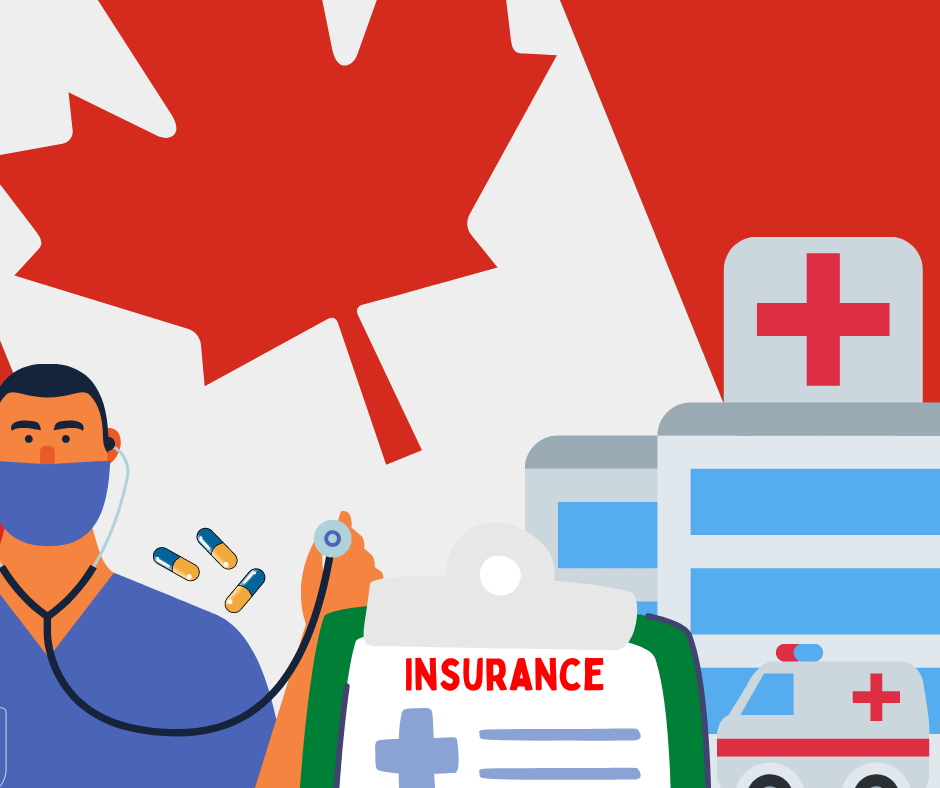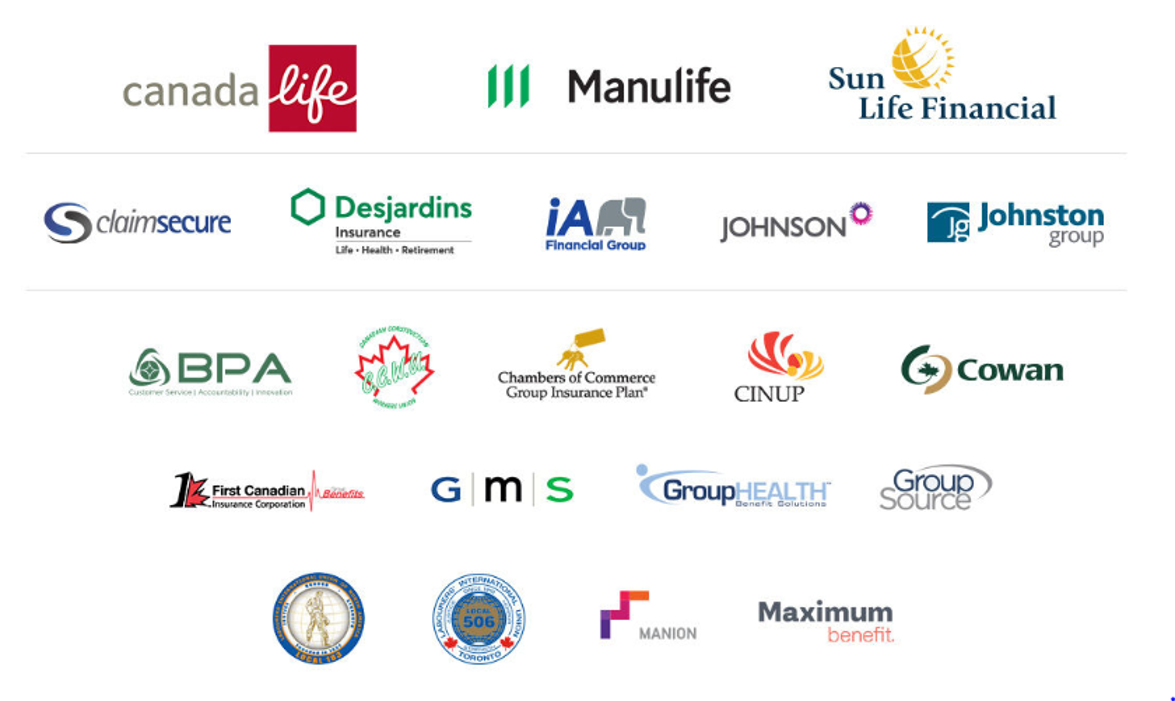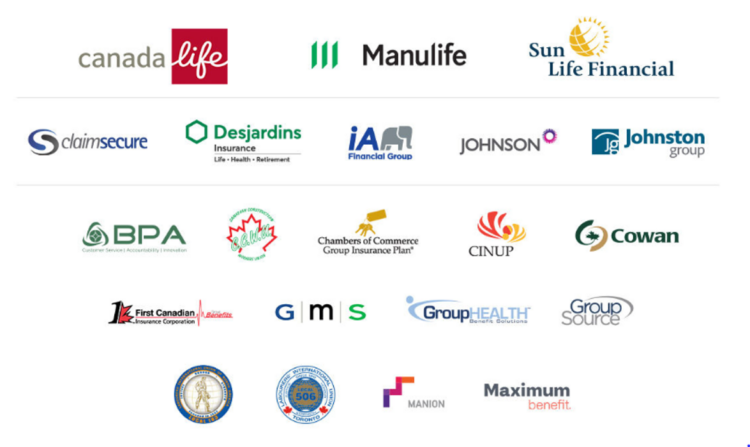
Does US health insurance work in Canada? This question arises for many Canadians, particularly those with ties to the United States or who travel frequently across the border. While Canada boasts a universal healthcare system, there are situations where US health insurance can provide valuable coverage. This exploration delves into the complexities of navigating both systems, highlighting the potential benefits and drawbacks of US health insurance in a Canadian context.
From understanding the fundamental principles of Canada’s universal healthcare system to examining the specific scenarios where US health insurance might be necessary, this discussion sheds light on the intricacies of healthcare coverage across borders. We’ll explore the types of US health insurance plans available in Canada, their accessibility, coverage limitations, and potential costs. Furthermore, we’ll consider alternative healthcare options for Canadians seeking coverage beyond the Canadian system and address the legal and regulatory considerations surrounding the use of US health insurance in Canada.
Understanding the Canadian Healthcare System

Canada’s healthcare system is a complex and fascinating subject, particularly when compared to the US system. Understanding its fundamental principles and how it operates can shed light on the differences and similarities between the two approaches.
The Core Principles of Canada’s Universal Healthcare System
Canada’s healthcare system operates on the principle of universal healthcare, meaning that all citizens and permanent residents have access to essential healthcare services regardless of their income, employment status, or pre-existing conditions. This system is funded through taxes and administered by the provinces and territories.
- Publicly funded: The government, through taxation, finances healthcare services. This means that healthcare is not tied to employment or private insurance, making it accessible to all citizens.
- Universally accessible: Every Canadian citizen and permanent resident has access to healthcare services, regardless of their ability to pay. This ensures that everyone has a basic level of healthcare protection.
- Comprehensive coverage: The Canadian healthcare system covers a wide range of essential medical services, including hospital care, physician services, and some prescription drugs.
- Portable: Healthcare coverage is portable across provinces and territories, meaning that Canadians can access healthcare services wherever they are in the country.
The Government’s Role in Healthcare
The government plays a crucial role in managing and funding the Canadian healthcare system.
- Provincial/Territorial Administration: Each province and territory administers its own healthcare system, setting policies, managing budgets, and negotiating with healthcare providers.
- Funding: The federal government provides funding to provinces and territories to support healthcare services through transfer payments. These payments are based on population size and other factors.
- Regulation: The federal government also sets national standards and regulations for healthcare, ensuring consistency and quality across the country.
Comparison with the US System
The US healthcare system is fundamentally different from the Canadian system. The US system is primarily based on private insurance, with individuals and employers paying premiums for coverage. This system can lead to significant disparities in access to care based on income and employment status.
- Private Insurance: The US system relies heavily on private insurance, with individuals and employers purchasing health insurance plans. This can lead to high out-of-pocket costs and limited access to care for those without insurance.
- Market-Driven: The US system is largely driven by market forces, with insurance companies competing for customers and healthcare providers setting their own fees. This can result in higher costs and less emphasis on universal access.
- Limited Coverage: US health insurance plans often have limited coverage, with deductibles, co-pays, and exclusions that can restrict access to care.
US Health Insurance in Canada

While Canada boasts a universal healthcare system, there are situations where Canadians might find themselves needing US health insurance. This can be due to factors like travel, work, or specific medical needs.
Prevalence of US Health Insurance Among Canadians
The prevalence of US health insurance among Canadians is relatively low. Most Canadians rely on the publicly funded Canadian healthcare system. However, there are specific circumstances where US health insurance becomes relevant.
Situations Where Canadians Might Need US Health Insurance
- Travel to the US: Canadians traveling to the US, especially for extended periods or for medical reasons, may require US health insurance. This is because Canadian healthcare does not cover medical expenses incurred outside Canada.
- Work in the US: Canadians working in the US, either temporarily or permanently, are often required to have US health insurance as part of their employment.
- Medical Tourism: Some Canadians opt for medical procedures in the US, seeking faster access, specialized care, or lower costs. In such cases, US health insurance can be essential for coverage.
- Specific Medical Needs: Canadians with certain medical conditions, such as rare diseases or requiring specialized treatments, may find US health insurance a viable option, especially if they face long wait times or limited access in Canada.
Types of US Health Insurance Plans Available in Canada
- Travel Insurance: This is the most common type of US health insurance for Canadians, offering coverage for medical expenses incurred during temporary visits to the US. It often includes emergency medical evacuation and repatriation.
- International Health Insurance: This type of plan is designed for individuals living or working abroad, including Canadians in the US. It typically provides comprehensive coverage for medical expenses, including hospitalization, surgery, and ongoing treatment.
- Expatriate Health Insurance: Specifically tailored for individuals living and working abroad, this type of plan often includes coverage for medical expenses, repatriation, and other benefits, such as language translation services.
Accessibility and Coverage: Does Us Health Insurance Work In Canada
While US health insurance may seem like a viable option for Canadians, the reality is that accessing healthcare in the US with US insurance can be quite complex and potentially costly. The coverage limitations, accessibility challenges, and potential costs associated with using US health insurance in Canada need to be carefully considered.
Coverage Limitations
The coverage provided by US health insurance plans can vary greatly, and not all plans cover the same services or conditions. Many US health insurance plans have limitations that may not be suitable for Canadians seeking healthcare in Canada.
- Limited Network Coverage: US health insurance plans often have limited networks of providers, meaning that Canadians may not be able to access care from the providers they need in Canada. This can lead to out-of-network costs, which can be significantly higher than in-network costs.
- Pre-existing Conditions: Some US health insurance plans may have limitations or exclusions for pre-existing conditions, which can be a significant concern for Canadians with pre-existing health issues.
- Coverage for Specific Services: Certain services, such as mental health care or prescription drugs, may have limitations or require pre-authorization under US health insurance plans. This can create difficulties for Canadians seeking these services in Canada.
Challenges Accessing US Healthcare Providers
Even if a Canadian has US health insurance, accessing US healthcare providers in Canada can be challenging.
- Licensing and Credentialing: US healthcare providers may not be licensed or credentialed to practice in Canada, which can create obstacles for Canadians seeking their services.
- Communication and Language Barriers: Canadians may encounter communication challenges with US healthcare providers, especially if they do not speak English as a first language.
- Physical Distance and Travel Costs: Accessing US healthcare providers in Canada often requires significant travel, which can be costly and time-consuming.
Potential Costs
Using US health insurance in Canada can be significantly more expensive than using the Canadian healthcare system.
- Out-of-Network Costs: If a Canadian uses an out-of-network provider, they may be responsible for a significant portion of the costs.
- Deductibles and Co-pays: US health insurance plans often have deductibles and co-pays, which can add up to a substantial amount.
- Travel Costs: Traveling to the US for healthcare can be expensive, including transportation, accommodation, and other related expenses.
Alternatives to US Health Insurance
While Canada’s universal healthcare system provides essential medical coverage, there are instances where Canadians may require additional protection beyond the public system. This is particularly relevant for individuals seeking specialized medical care, extensive coverage for travel, or coverage for services not covered by the public system. In such cases, alternative healthcare options can provide the necessary financial support and peace of mind.
Private Health Insurance
Private health insurance is a common alternative for Canadians seeking coverage for services not covered by the public system. These plans can be purchased from various insurance providers and offer a range of coverage options, including:
- Dental care: Private insurance can cover dental procedures not covered by the public system, such as cosmetic dentistry or extensive dental work.
- Vision care: Eye exams, eyeglasses, and contact lenses may be covered under private health insurance plans.
- Prescription drugs: Some plans offer coverage for prescription drugs, particularly those not covered by provincial drug plans.
- Travel insurance: Private travel insurance provides coverage for medical emergencies, evacuations, and other travel-related risks while abroad.
The cost of private health insurance varies depending on factors such as age, health status, coverage level, and the insurance provider. Premiums can range from a few hundred dollars to several thousand dollars per year.
Critical Illness Insurance
Critical illness insurance provides a lump-sum payment to individuals diagnosed with a specific critical illness, such as cancer, heart attack, or stroke. This financial support can help cover expenses associated with treatment, lost income, and other financial burdens.
- Financial support: The lump-sum payment can help cover treatment costs, lost wages, and other expenses related to the critical illness.
- Peace of mind: Knowing that financial support is available can reduce stress and anxiety during a difficult time.
Critical illness insurance premiums vary depending on factors such as age, health status, and the coverage amount. Premiums are typically higher for individuals with pre-existing conditions or those seeking higher coverage amounts.
Health Spending Accounts (HSAs)
Health Spending Accounts (HSAs) are employer-sponsored plans that allow employees to set aside pre-tax dollars for healthcare expenses. HSAs provide flexibility in choosing healthcare services and can be used to cover a wide range of expenses, including:
- Prescription drugs: HSAs can be used to cover prescription drugs not covered by provincial drug plans.
- Dental care: Dental procedures, including those not covered by the public system, can be paid for using HSA funds.
- Vision care: Eye exams, eyeglasses, and contact lenses can be covered by HSAs.
- Other healthcare expenses: HSAs can be used for a wide range of other healthcare expenses, such as physiotherapy, massage therapy, and alternative medicine.
The amount of money that can be contributed to an HSA is typically limited by the employer, and unused funds may be rolled over to the next year.
Factors Influencing Healthcare Options
The choice of healthcare options for Canadians is influenced by a number of factors, including:
- Individual needs: Individuals with specific healthcare needs, such as those requiring specialized medical care or coverage for services not covered by the public system, may opt for private health insurance or other alternatives.
- Financial resources: The cost of healthcare options can vary significantly, and individuals need to consider their financial resources when making a decision.
- Coverage level: The level of coverage offered by different healthcare options can vary, and individuals need to choose a plan that meets their needs.
- Employer benefits: Employers may offer health spending accounts or other benefits that can supplement public healthcare coverage.
- Personal preferences: Individuals may have personal preferences regarding healthcare providers or services, which can influence their choice of healthcare options.
Legal and Regulatory Considerations
While the Canadian healthcare system is universal and publicly funded, there are legal and regulatory considerations surrounding the use of US health insurance in Canada. These considerations are crucial for understanding the implications and potential risks associated with relying on US health insurance while residing in Canada.
Regulations and Policies Governing Foreign Health Insurance, Does us health insurance work in canada
The use of foreign health insurance in Canada is not explicitly prohibited, but there are regulations and policies that govern its use. These regulations are designed to ensure the integrity of the Canadian healthcare system and protect the interests of Canadian citizens.
- Provincial and Territorial Regulations: Each Canadian province and territory has its own regulations regarding private health insurance. These regulations may vary in terms of the types of coverage permitted and the conditions under which foreign health insurance can be used. It’s essential to consult with the relevant provincial or territorial health authority for specific guidelines.
- Canada Health Act: The Canada Health Act is the cornerstone of Canada’s healthcare system. It Artikels the principles of universality, accessibility, comprehensiveness, portability, and public administration. While the Act does not directly address foreign health insurance, it emphasizes the principle of public administration, suggesting that reliance on private insurance could potentially undermine the Canadian healthcare system.
- Canadian Tax Implications: Canadians who use foreign health insurance may face tax implications. For example, premiums paid for foreign health insurance may not be tax-deductible, while benefits received from foreign health insurance may be subject to Canadian taxation. It’s crucial to consult with a tax professional to understand the tax implications of using foreign health insurance.
Final Summary

Navigating the healthcare landscape in Canada can be complex, especially when considering the role of US health insurance. While Canada’s universal system provides essential coverage, specific situations might necessitate additional protection through US health insurance. Understanding the intricacies of both systems, including coverage limitations, potential costs, and legal implications, is crucial for making informed decisions. By exploring alternative healthcare options and considering the factors that influence choice, Canadians can ensure they have the appropriate coverage to meet their healthcare needs, regardless of their location or circumstances.
Popular Questions
What are the advantages of using US health insurance in Canada?
US health insurance can offer supplemental coverage for services not covered by Canada’s universal healthcare system, such as private hospital rooms, specialized treatments, or out-of-country medical emergencies.
Can I use my US health insurance to see a doctor in Canada?
It depends on the specific plan. Some US health insurance plans may cover visits to Canadian doctors, while others might require pre-authorization or have specific restrictions.
Is it cheaper to use US health insurance in Canada than the Canadian system?
Not necessarily. US health insurance premiums can be expensive, and the coverage may not always be cheaper than paying out-of-pocket for services in Canada.
What are the legal implications of using US health insurance in Canada?
It’s important to understand the legal framework surrounding the use of foreign health insurance in Canada. Regulations and policies might govern the use of US health insurance, and potential legal implications could arise for Canadians using these plans.





